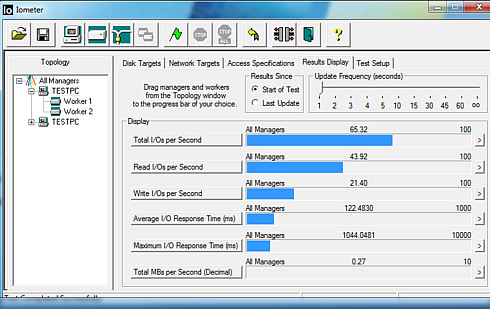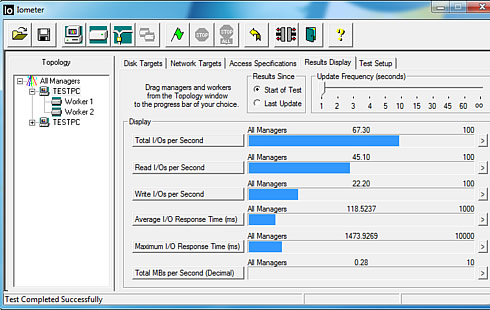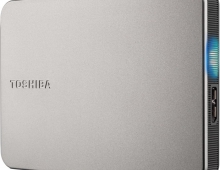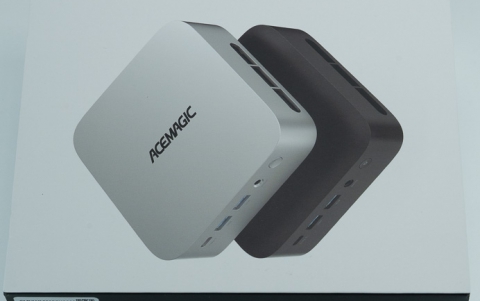Toshiba SSHD 1TB review
5. Benchmarks- page 2
Review Pages
The next software we used was the ATTO Disk Benchmark. The tool measures storage systems performance with various transfer sizes and test lengths for reads and writes. The benchmark performs file transfers ranging from 0.5 KB to 8192 KB. ATTO can be adjusted to do overlapped I/O, in a variety of queue depths. We tested the SSD using the benchmark's default settings, using 256KB file length performance and QD4.

The SSHD was capable of 180 MB/s read, followed by 90 MB/s write
The next benchmark is the CrystalDiskMark. The software provides throughput data based on sequential reads and writes, and random (512K/4K/4KQD32) reads and writes of various sizes.

This is the IOMeter benchmark. Iometer is run by using workstation and database patterns for queue depths (outstanding I/Os) representing very light and moderate loads. Iometer is both a workload generator (that is, it performs I/O operations in order to stress the system) and a measurement tool (that is, it examines and records the performance of its I/O operations and their impact on the system). The app's ability to bombard drives with an escalating number of concurrent IO requests also does a nice job of simulating the sort of demanding multi-user environments that are common in enterprise applications. We started using the IOMeter tests using the Xtreme Benchmark template . For the specific test, we used 100% random, 67%-33% Read/write distribution.
Again, we ran the test two times.
- 1st run

- 2nd run

The Total I/Os per second was a bit higher in the second run, but not significant enough to unveil any contribution of the drive's cache.
Review Pages





















